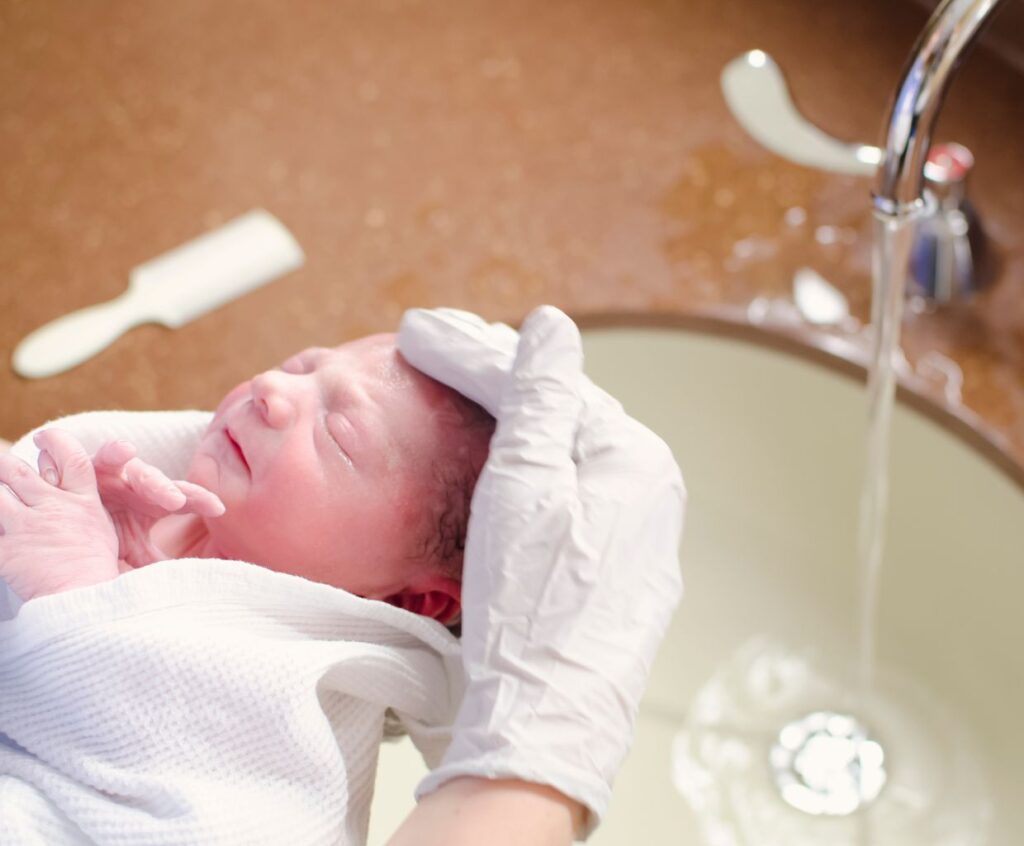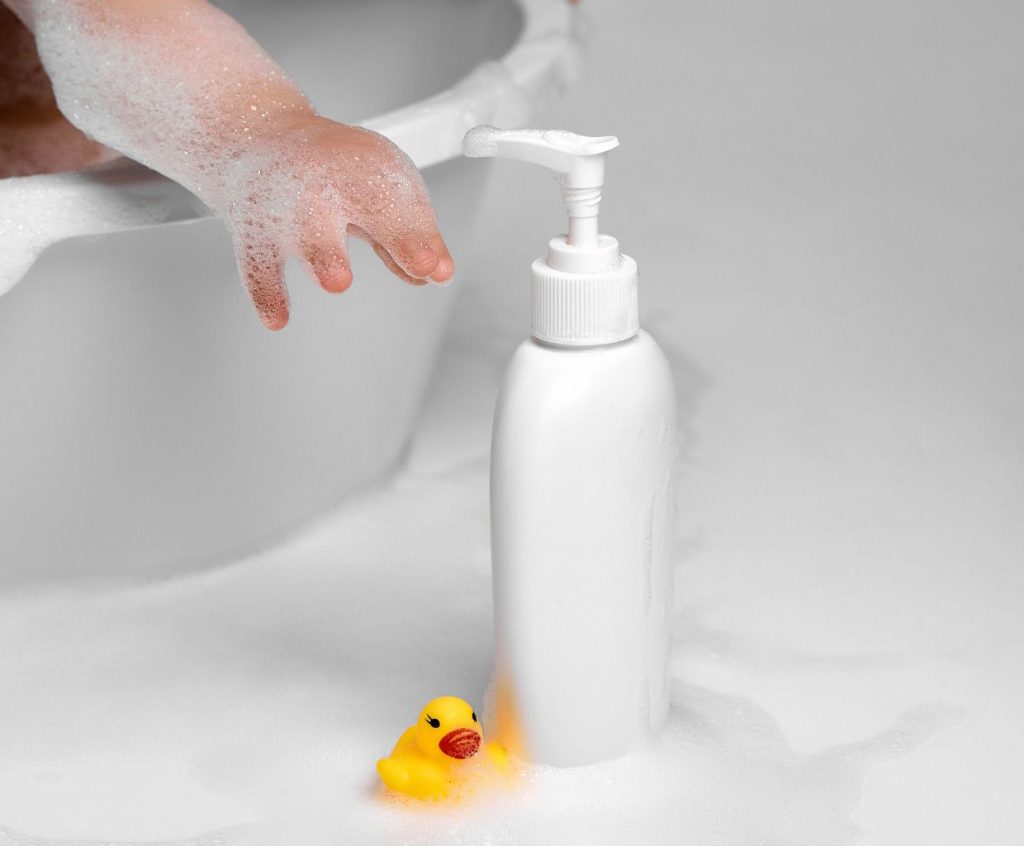How Often Should You Bathe Your Baby? Baby Bathing Guidelines
When bathing your baby, every parent wants to keep their little one clean and healthy. However, determining how often to bathe your baby can be a common concern for many new parents.
While there is no one-size-fits-all answer, some general guidelines can help you establish a bathing routine that works for you and your baby.
Factors to Consider
There are a few factors that you should take into consideration when determining the frequency of your baby’s baths:
-
- Age: Newborns have delicate skin and don’t get dirty as quickly as older babies. For the first few weeks, it is generally recommended to sponge-bathe your baby two to three times a week. As your baby grows, you can gradually increase the frequency of baths.
-
- Weather and Climate: The weather can also affect how often your baby needs to be bathed. In warmer climates or during hot summer months, your baby may sweat more and require more frequent baths to stay comfortable and clean.
-
- Activity Level: If your baby is crawling or walking and exploring their surroundings, they may get dirtier more quickly. In such cases, you may need to bathe them more frequently to keep them clean.
Bathing Tips
To make bath time an enjoyable experience for both you and your baby, here are some tips to keep in mind:
-
- Use lukewarm water: Fill the baby tub with comfortable warm water. Check the water temperature using your elbow or a bath thermometer to ensure it is not too hot or cold.
- Be gentle: Handle your baby carefully and use mild, fragrance-free baby soap or cleanser. Gently wash their body, avoid the eyes, and rinse thoroughly.
- Watch for signs of dryness: Overbathing can lead to dry skin, so striking a balance is essential. If your baby’s skin becomes dry or irritated, consider reducing the bathing frequency and moisturizing the skin with a baby-friendly lotion.
How often should I wash my baby’s hair?
Washing your baby’s hair 1-2 times a week is generally recommended. However, this can vary depending on your baby’s age, hair type, and overall health. If your baby’s hair gets dirty or oily, you can wash it more frequently.
It’s essential to use a gentle baby shampoo and to be cautious about getting water or shampoo in your baby’s eyes.
What is the appropriate frequency for bathing a newborn baby?
The appropriate frequency for bathing a newborn baby is usually 2-3 times weekly. It is essential to avoid bathing them too frequently as it can dry out their delicate skin.
However, it would be best to still clean their face, neck, hands, and diaper area daily with a washcloth or sponge.
Can bathing a baby too frequently cause dry skin?
Bathing a baby too frequently can indeed cause dry skin. While it is essential to keep a baby clean, excessive bathing can strip the natural oils from their skin, leading to dryness and irritation.
It is recommended to bathe a baby 2-3 times a week during their first year, using warm water and mild baby soap. Additionally, moisturizing their skin with a gentle baby lotion after each bath can help prevent dryness.
Are there any recommended baby bathing products or brands?
Yes, several recommended baby bathing products and brands are known for their gentle and safe ingredients. Some popular and trusted brands include:
1. Johnson’s Baby: Known for its mild and gentle formulas, Johnson’s Baby offers a wide range of baby bathing products, including shampoo, body wash, and lotions.
2. Aveeno Baby: Aveeno is known for using natural ingredients like oat extracts in their baby products, which are gentle on the baby’s skin and help maintain its natural moisture barrier.
3. Mustela: Mustela offers a range of baby bathing products specifically formulated for sensitive skin. They use ingredients like avocado perseose and sunflower oil to nourish and protect the baby’s delicate skin.
4. Cetaphil Baby: Cetaphil Baby products are designed to be gentle and hypoallergenic, making them suitable for babies with sensitive skin. They offer a range of bath products, including washes and shampoos.
5. Burt’s Bees Baby: Burt’s Bees Baby products are made with natural ingredients and are free from harsh chemicals, fragrances, and parabens. They offer a range of baby bathing products, including bubble baths, shampoo, and lotion.
It is important to note that every baby is different, and what works for one may not work for another. It is always a good idea to patch-test new products on a small area of the baby’s skin and consult a pediatrician before introducing new products.
What are the signs of over-bathing a baby
There are a few signs that indicate that a baby may be over-bathed:
1. Dry and irritated skin: Overbathing can strip the natural oils from a baby’s skin, leading to dryness, redness, and irritation.
2. Flaky or peeling skin: Excessive bathing can cause the baby’s skin to become overly dry, resulting in flaky or peeling skin.
3. Rashes or eczema: Overbathing can disrupt the natural pH balance of a baby’s skin, making them more prone to rashes or eczema flare-ups.
4. Hair and scalp issues: Washing a baby’s hair frequently can strip away natural oils and lead to a dry scalp, dandruff, or cradle cap.
5. Fussiness or discomfort: If a baby becomes excessively fussy or uncomfortable during or after bath time, it may be a sign that they are over-bathed and their skin is irritated.
It is essential to strike a balance when bathing a baby, ensuring that they are clean without overdoing it and causing harm to their delicate skin.
How Often Should You Bathe Your Baby? – Conclusion
Remember, every baby is unique, and their bathing needs may vary. By considering factors such as age, weather, and activity level, you can determine how often to bathe your baby. Additionally, following some bathing tips will help you create a safe and enjoyable bathing routine for your little one.
If you have any concerns or questions, it is always best to consult your pediatrician for personalized advice.


